Policing the Playhouse
Hey everyone,
This isn’t quite a tech piece, but it’s got a connection, I promise.
I was hit pretty hard by Paul Reubens’s passing. For this week, I’ve put down some thoughts on Reubens’s work, what we consider obscene, and what’s at stake in the fight to stop bills like KOSA, which would wipe so-called “harmful content” from the internet.
Here we go…
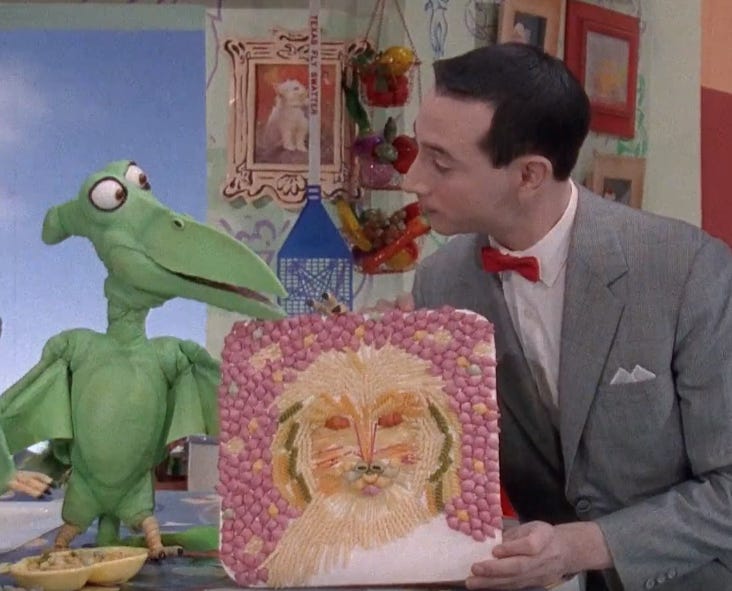
As a kid, I watched back-to-back hours of Pee-wee’s Playhouse. I was idling under double digits in the early aughts and dipping my toes into irony, something I appreciated for winning the coveted attention of the grown-ups in the room. Studiously, I did not shriek at Pee-wee Herman’s hyperactive antics; I did not hoot and holler at mention of the secret word.
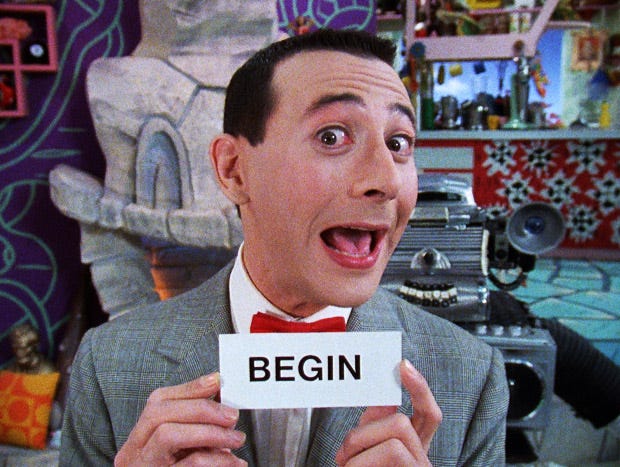
If I seemed detached, it belied the impact Pee-wee’s circus of chaos had on me. At my age, it was both an escape from reality and a simulation that felt more true-to-life than life itself: here was a world in which someone reacted appropriately (shaking, moaning, physically curdling) to the indignity of, for example, not receiving a pen-pal’s letter in the mail.
Paul Reubens, Pee-wee’s creator, performer and alter ego, died last Sunday at the age of 70. His Playhouse, a spin off of a spin off, was a placeless, ageless variety show in which Pee-wee, a baby faced man-in-a-grey-suit shot full of some kind of Four Loko precursor, guided you through the opprobrium of social exclusion and the joys of an anarchic diet.
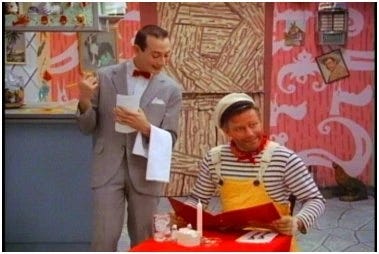
Pee-wee’s Playhouse was the bona fide birthplace of ice cream soup. It was where your chair had a name (“Chairy”) and where you might accidentally turn invisible. It was screamingly loud, blazingly colorful, and toyed with the line between childish whimsy and adult naughtiness. On a recent rewatch, I found myself blushing as Pee-wee solicited his friends to “beg” him to play house. They do, with outrageous, conspicuous pleasure: please, please, please, PLEASE!
The show’s combination of nubile wonder and adult knowingness made it a hit for so many when it first aired in the late 80s. For kids, it was the perfect Saturday morning hallucination; for 20-somethings like my mom, it was a New Wave masterpiece; for academics, it was the source of endless culture-study hypotheses. The show ended after five seasons, followed by a bitter chaser when, in 1991, Reubens was arrested in an adult movie theater and charged with indecent exposure.
The media smelled a scandal, and Pee-wee was suddenly sharing tabloid paper with Jefferey Dahmer, who had been arrested four days earlier. Reubens has flatly denied the indecency charges—which, even if genuine, seem sufficiently unalarming and victimless.
Then, in 2002, his reputation took another hit. Reubens’s home was raided and he was charged with juvenile pornography possession. This charge was even leakier than the first. Reubens was an avid collector of mid-century ephemera, including vintage erotica—he bought bulk lots from dealers and was not knowingly collecting pictures of underage subjects. Later, the central piece of evidence against him was discarded as a police officer’s blunder.
But as Richard Goldstein put it in 2003, “For an androgynous former star of children’s TV, two strokes and you’re out.”
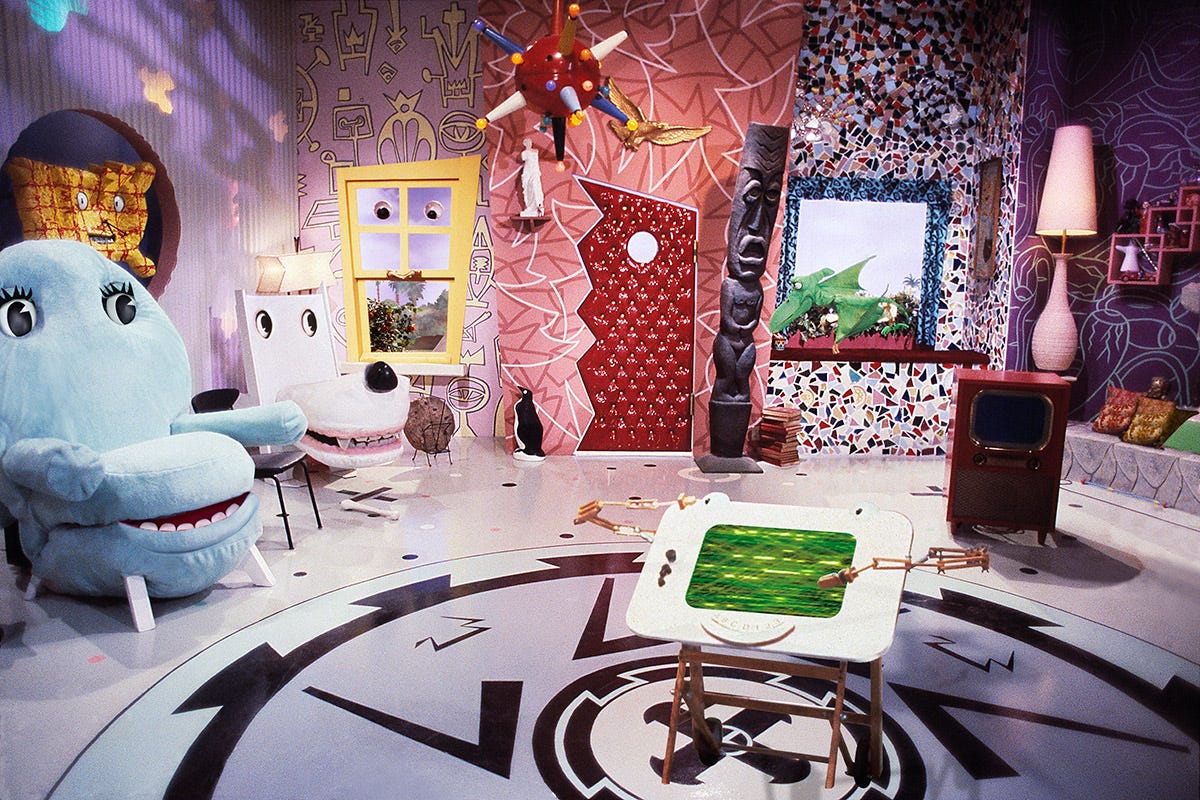
Reubens’s charges pushed him into the forbidden zone between life and game, innocence and sin—a tantalizing place for children, who have powerful memories for anything off-limits. (I remember the grade school delirium when Blues Clue’s’ Steve disappeared: “He’s going to REHAB!” we whispered, though none of us knew where exactly “rehab” was.) Unlike filmmaker and self-professed pervert John Waters, whose campy creations bubbled up from the underground, Pee-wee couldn’t withstand the fall from network TV’s good graces.
Although Reubens was not open about his personal life, the gender subversion and theatrical affect in Playhouse turned him into a target for anti-gay bigots, whose weapon-of-choice remains a hystericized connection between queerness and child abuse. Unfortunately, we might expect an even darker “cancellation” for Pee-wee today; in today’s school hallways, Moms for Liberty scream “child molester” at the parents of queer kids.
2023’s bigots are working with new tools and at a larger scale. Conservative groups are using “private right of action” constructions to restrict access to abortion and other forms of healthcare. They’re crying “protect the kids!” while banning books and undercutting public education. And they’re trying to write their hatred of queerness, expressivity, and difference into Federal law.
For months, my colleagues and I have been shouting from the rafters about the Kids Online Safety Act—a bill that would empower state officials to decide which online content is “harmful to minors,” and therefore a legal liability to host. It is obvious, and becomes more so with every anti-LGBTQ organization that endorses it, that KOSA will be weaponized against anything that makes kids feel okay to be different.
Should KOSA pass, episodes of Pee-wee’s Playhouse—with their loopy innuendoes and queer icon guest stars—might be unceremoniously pulled from the web, depriving future generations of the joy of watching a raggedy sea captain profess his desire for a big platter of pu-pus.
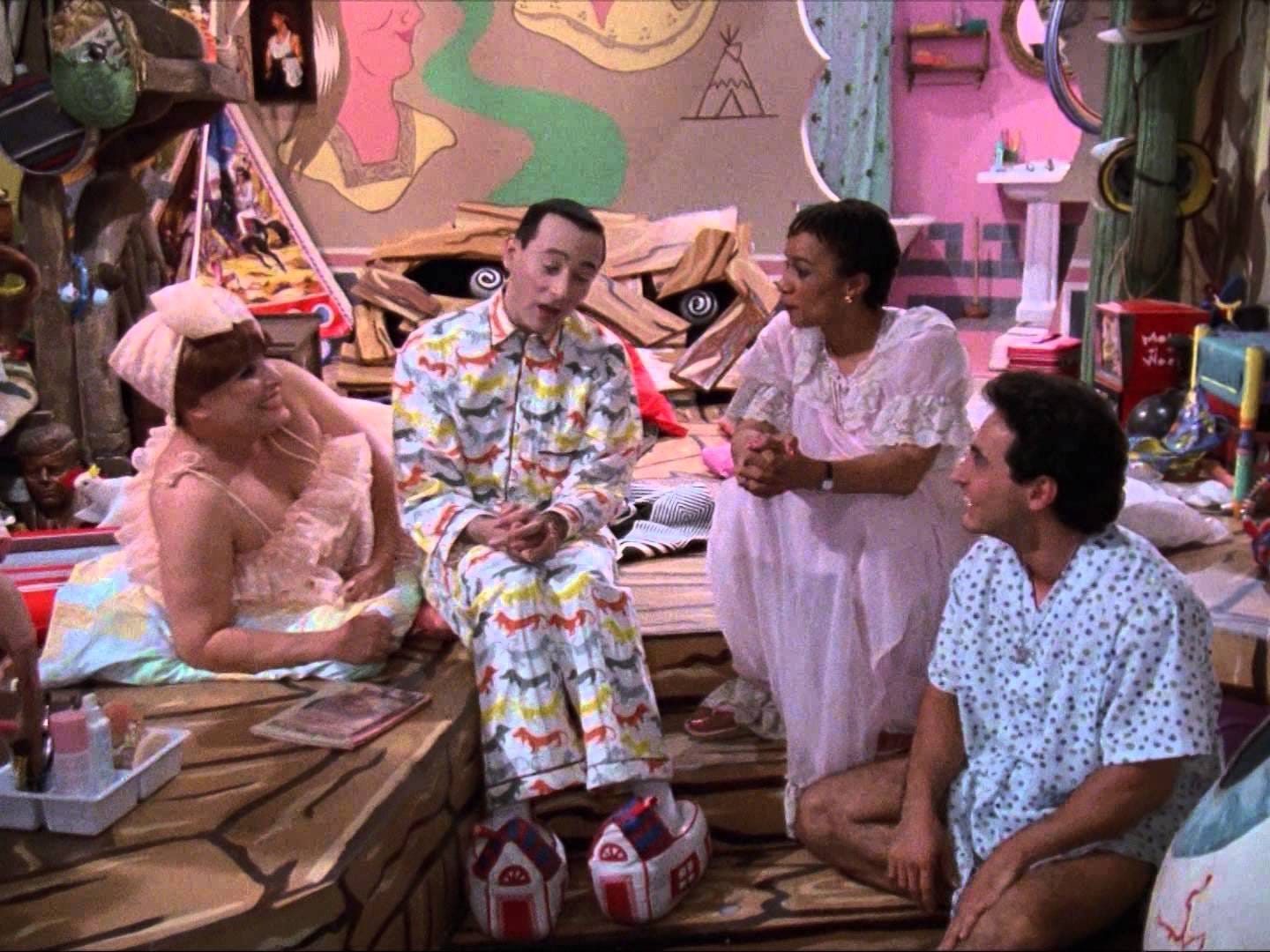
As a young viewer, I fell for Playhouse because I could sense that Pee-wee and his corps of anthropomorphic furniture, as rough and roguish as they were, respected me. The show treasured kids’ whimsy, our intelligence, and the fact that we might grow up and watch it when we were no longer kids at all. KOSA and its allied censorship bills—bills that force kids to hand over their passwords, endure surveillance at school, and log off by curfew—don’t respect kids, or the adults they’ll become.
In writing this, it’s not so much that I thank Paul Reubens (though I secretly, desperately do,) but I thank, and will fight for, the open world, freaks-first climate that allowed Pee Wee’s Playhouse to make its way into my life.
P.S. If anyone has a pair of Pee-wee Dunks (M8), don’t be shy…
Readout
- Another place KOSA would likely be weaponized: fan communities like Archive of Our Own. My colleague Sarah Phillips has an excellent piece about the importance of fandom in Teen Vogue.
- If you’d like to go more in-depth on KOSA, Melissa Gira Grant has a great piece in the New Republic.
- Vice’s Janus Rose covers the anti-LBGTQ hate groups endorsing KOSA here.
- Credit card companies are fumbling the bag. Intermediary problems at Patreon are causing users to miss their payouts, and Mastercard is blocking debit card users from buying cannabis, even where it’s legal.

Member discussion